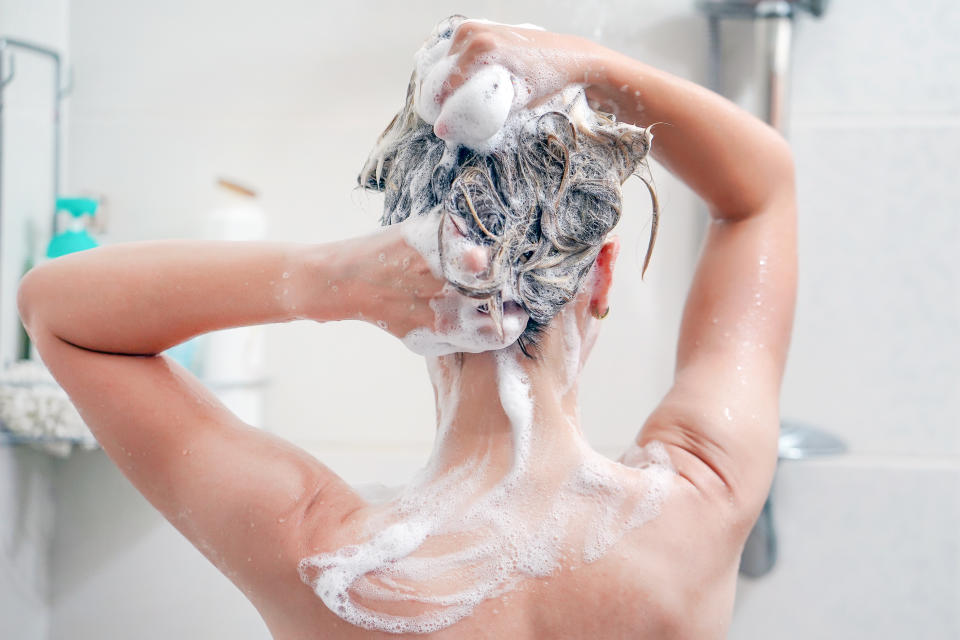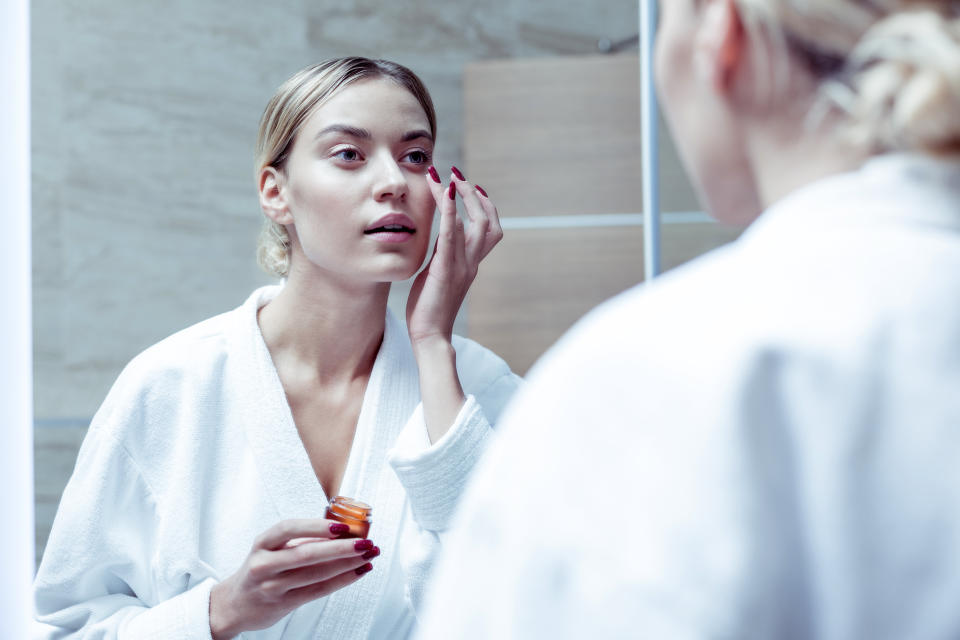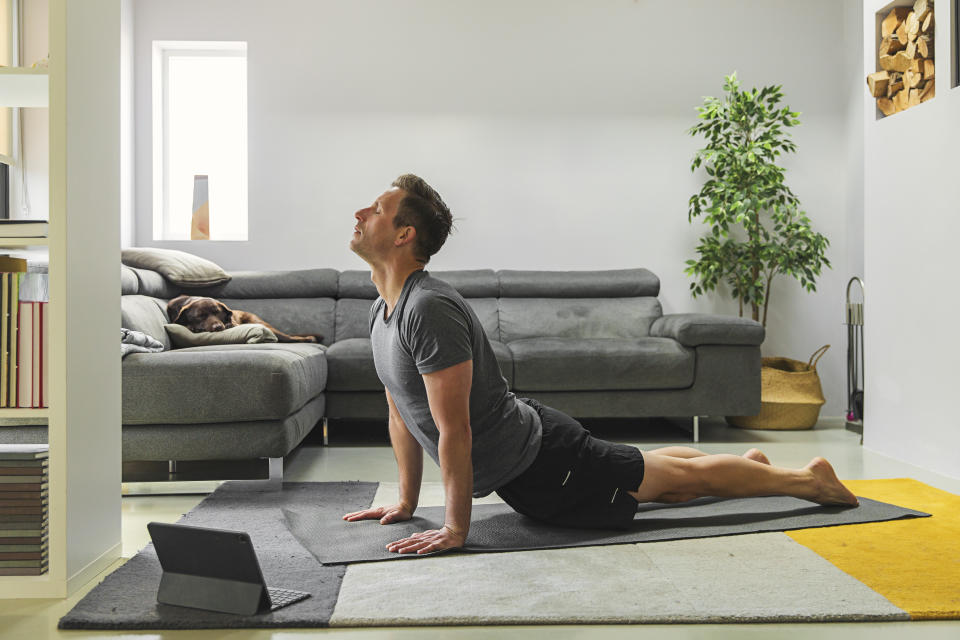The time of day you shower can affect your mood
As our day-to-day lives continue to shift amid the coronavirus pandemic, turning to the familiarity of established routines can help structure and organise the day in a time that can feel out of our control.
For many, this shift has included a dedication to maintaining exceptional hygiene.
“I think people are very aware now, more than ever, how much bacteria, viruses, et cetera, we carry on our bodies – especially our hands,” Judy Rosenberg, psychologist and creator of the Be The Cause Mind Map System, tells Yahoo Lifestyle.

“We are understanding that to be preventive and give ourselves an opportunity to be free of these harmful bacteria and viruses, we need to be proactive and bathe ... now that we are being told to wash our hands and clean ourselves for the sake of life itself, it forces us to be more meticulous in this area.”
The focus on physical health and well-being has become paramount since the pandemic began, giving many an appreciation for a proper bathing routine now more than ever before.
“Bathing habits can help our overall mood and well-being by keeping us on a regular schedule and helping our immune system, which can be beneficial during the current pandemic,” Amy Mlodzianowski-DePaolo, an oncology social worker in Connecticut, tells us.
And whether you’re hopping into the shower for five minutes, twenty minutes or even longer, the time of the day that you decide to get clean will have different implications for you mentally and emotionally — and might be telltale signs of what you’re most in need of.
If you shower first thing in the morning
For many, taking a shower first thing in the morning is a guaranteed way to wake up both the mind and the body.
“Showering is a rebooting of your physical and psychological system,” Rosenberg tells Yahoo Life. “In the morning, it is a physical and emotional way of re-energising.”
For those whose standards of productivity have changed, a first-thing shower is a way to start the day on the right track, whether you’re a natural-born morning person or not.

“Taking into account a typical 9-5 schedule, for many the best time to shower to boost productivity would be the morning,” says DePaolo. She adds that morning showers can be viewed as “a set activity before beginning other planned work” and “can serve as a time to ‘mentally’ prepare for the day.”
Hitting the shower as a way to start the day can help encourage that right-brain thinking from the get-go, which makes it popular among creative types.
“In the morning, showering can help promote creativity,” says Dr. Jen Hartstein, Yahoo Life Mental Health Contributor and practicing psychologist. “We have some quiet time that is almost meditative and allows for us to have more free-flowing thoughts, which can help us solve that elusive problem or come up with a new idea.”
One of the many unfortunate implications of the pandemic is that millions of people have lost their jobs. For many, developing new hobbies, habits and goals during the pandemic means not abiding by their standard schedule, which also means that it can be difficult to determine when to take a break to eat, walk around or just switch gears.
If you shower in the afternoon
“Showering in the afternoon can provide a break from the day,” says DePaolo. “[It’s] a time to step away from work, school, or other tasks. It may allow time to clear one’s thoughts and prepare for the remainder of the day.”
Hopping in the shower after a quick workout or during a 15-minute free moment in the middle of the day can revitalise and reset your mind to push through the rest of the day’s schedule.
Though Hartstein notes that afternoon showers are “not as optimal overall,” she tells Yahoo Life that a midday scrub can “can be the wake-up call we need to re-energise and recommit to the things we are trying to accomplish” when we begin to hit a sluggish slump.

If you shower before bed
But for those who are trying to accomplish the exact opposite of revitalisation, showering pre-bedtime might be the key to finally getting some shut-eye.
“The idea is that an evening shower can prep our body for sleep, helping us to wash away the day and move into a relaxed space,” Hartstein tells Yahoo Life. “There is some science that highlights the change in temperature shifts our body into a more calm internal space, allowing us to be more relaxed and ready for bed.”
Hartstein does advise to keep nighttime showers quick in an attempt to avoid the benefits of the shower from shifting from “relaxing to energising.”
Evening showers can “soothe you and dial down the amygdala,” Rosenberg tells Yahoo Life, which is something we can all benefit from in a time of anxiety.
For those struggling with the lack of routine, keeping track and awareness of our bathing routines is an easy way to subsequently keep track of our mental health as well.
“For many, this pandemic has created a loss of control,” says DePaolo. “Yet, there are still things we have control over and as simple as it sounds, our own personal hygiene and routine is one of them.”
If your showering habits have changed amid the pandemic
DePaolo warns to be mindful of a “shift in either direction” when it comes to either neglecting our bathing habits or overdoing it in comparison to how often and vigorously we would have bathed pre-pandemic.
“Individuals with symptoms of depression might struggle to take care of personal hygiene issues such as bathing,” she says. “This mostly has to do with a diminished interest in activities, as well as fatigue that can accompany depression.”
She also cautions that the opposite can take effect. Both mental health professionals and patients need to be on the lookout for “hygiene-related OCD compulsions [where one might have to shower, wash a set number of times],” as DePaolo explains that this type of behaviour can be “even more challenging for some currently” given the current health crisis.
Mental health and hygiene go hand-in-hand, especially in the time of the coronavirus pandemic.

“If you're skipping showers out of frustration with COVID-19, then every time that you notice you're un-showered, you will be reinforcing negative feelings about quarantine,” says Chloe Carmichael, a psychologist based in New York City.
“In other words, skipping showers can become a vicious circle for mental health and contribute to spiraling downward into depression. Showering is so important that when psychologists require a depressed person in an inpatient unit to shower, we refer to it as ‘behavioural activation.’
This is because taking on healthy behaviours can activate a healthy mindset. The reverse is true: skipping healthy behaviours such as showering can potentially activate a depressed mindset, especially if you are linking the reason for not showering, to something that is psychologically negative or stressful such as quarantine.”
Making the effort to stay clean and shower daily can help foster a positive mindset, even if you feel like putting it off or ignoring it. If you are unable to do so, that might indicate trouble.
“One way I can gauge the mental health of a patient is by observing their grooming and hygiene,” Rosenberg says. “Being clean and hygienic is an indicator of self-esteem and self-care… self-care communicates to you that you are important and worth it.”
Mental health support for yourself or a loved one can be found by calling Lifeline on 13 11 14, Mensline on 1300 789 978, or Kids Helpline on 1800 551 800. Online support is available via Beyond Blue.
Got a story tip or just want to get in touch? Email us at lifestyle.tips@verizonmedia.com.

 Yahoo Lifestyle
Yahoo Lifestyle 


